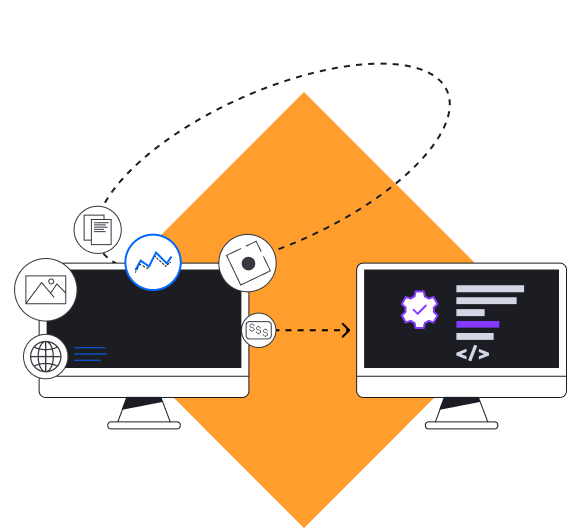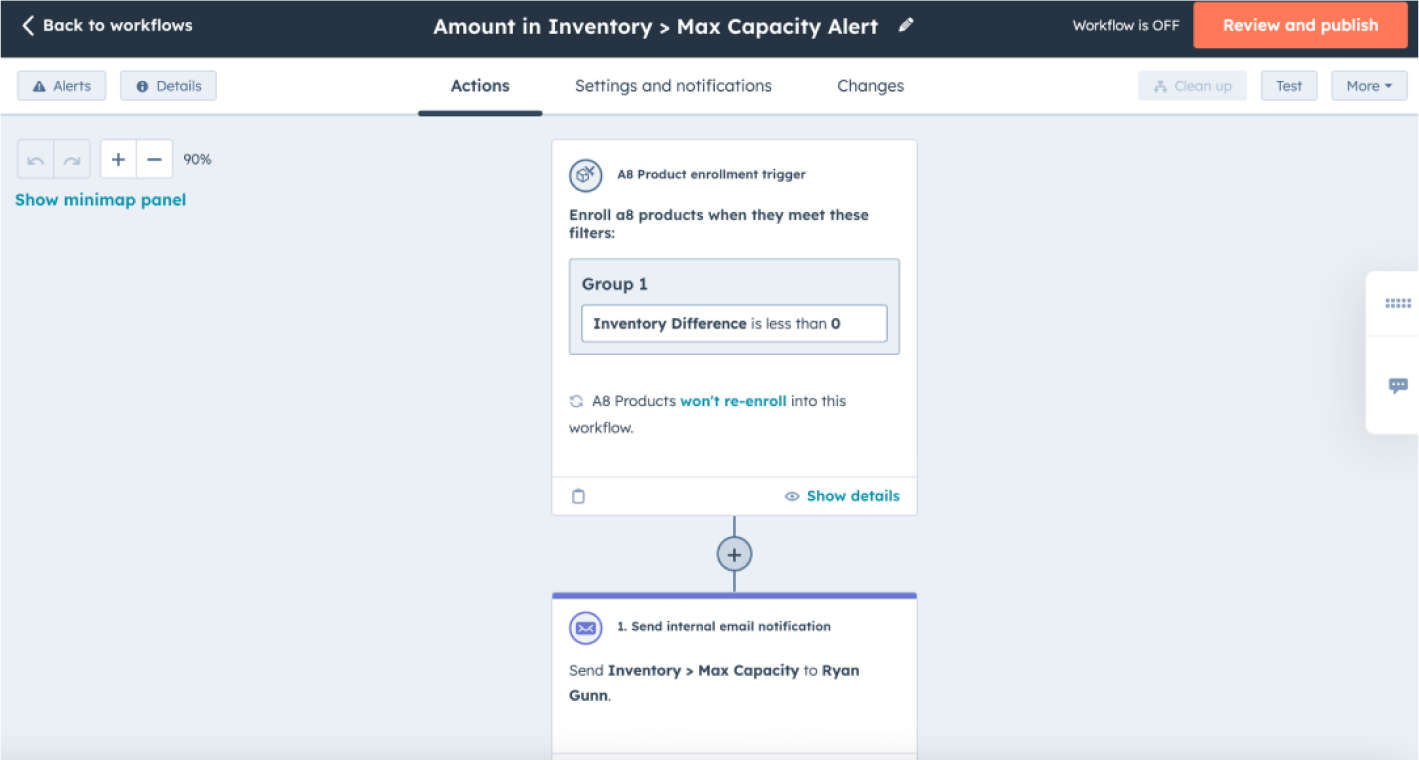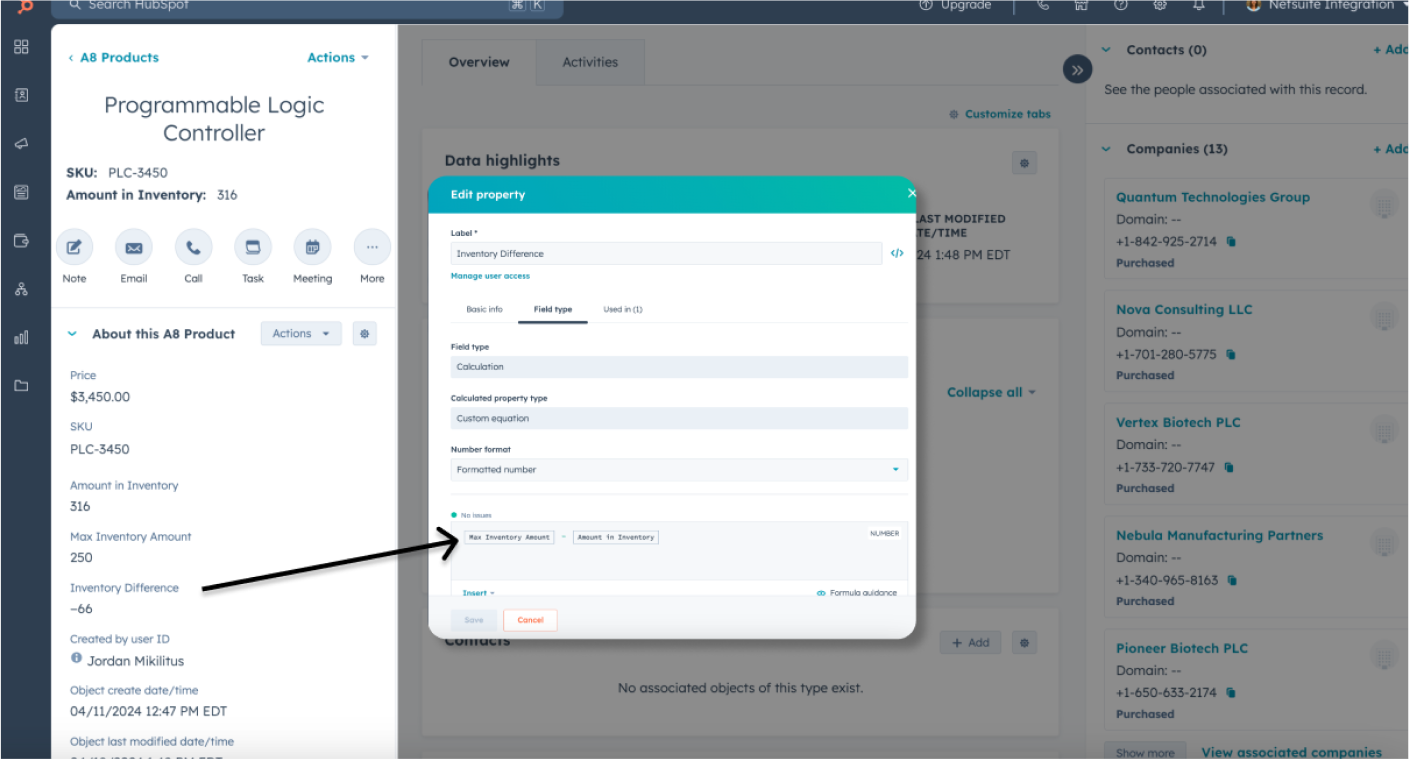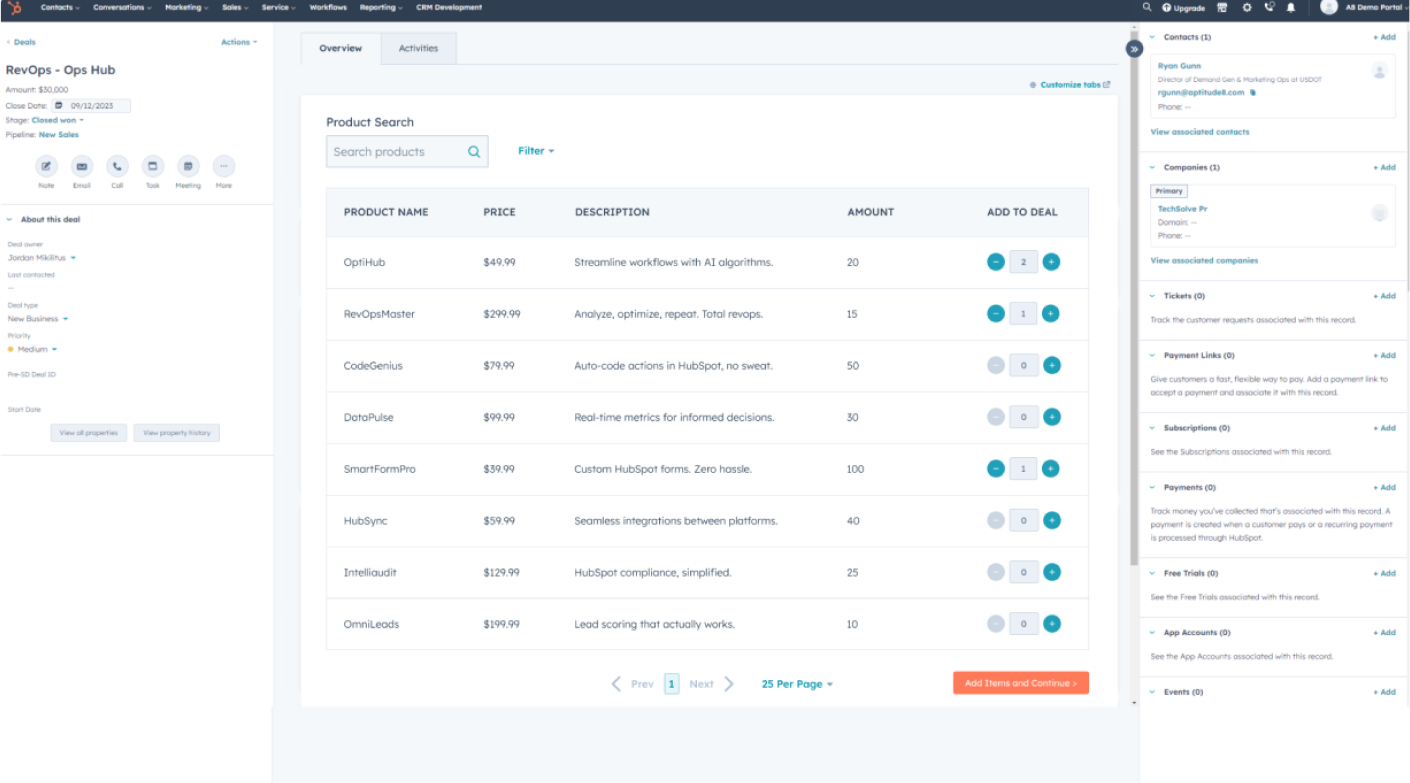HubSpot + NetSuite
Unify Your ERP and CRM for Streamlined Operations

Getting Started
What is NetSuite?
NetSuite is an Enterprise Resource Planning (ERP) software that helps businesses manage backend operations like finance, accounting, inventory, and supply chain. It’s especially popular among companies that need a powerful system to handle large amounts of financial data, multiple products, or complex logistics. NetsSuite as a tool, empowers businesses to gain full visibility into their financial and operational data.
Why is NetSuite important to HubSpot customers?
Integrating NetSuite with HubSpot allows businesses to seamlessly connect their ERP (back-end operations) with their CRM (customer-facing operations). This means go-to-market teams (sales, marketing, service) gain access to deeper and better insights, streamlined workflows, and ultimately more efficient processes overall.
Key Terms You Should Know
The Integration
How to Integrate NetSuite with HubSpot
There are several options for integrating NetSuite with HubSpot, ranging from simple setups to more complex, custom integrations depending on the company’s needs.
Integration Options
|
HubSpot Data Sync (HubSpot Marketplace Integration) |
NetSuite Suite Apps (Pre-Built Integrations) |
iPaaS Platforms (Zapier, Make, Celigo, Boomi, Workato)) |
Custom API Integration (Most Flexible) |
| Best for: Small companies with straightforward needs | Best for: Companies wanting a quick integration through trusted third-party apps. | Best for: Companies with growing needs that require more flexibility but don't want to develop a custom solution. |
Best for: Companies with unique or complex requirements. |
| Pros: Simple setup; syncs basic data like contacts and orders. | Pros: Designed specifically for NetSuite; easier to install and manage without much technical expertise. | Pros: Can handle more complex integrations, supports multiple data sources, easy set up with an intuitive interface. |
Pros: Fully customizable, meeting any advanced business needs. |
| Cons: Limited customization and scalability. | Cons: May not cover all custom requirements. Dependent on 3rd provider for updates + support. | Cons: Subscription fees can be costly depending on complexity + volume and some technical knowledge is necessary. |
Cons: Requires a development team; costly and time consuming and costly to maintain. |
Marketing Use Cases + Integration Types
Utilize purchase history and inventory levels to drive strategy
Customer Segmentation Based on Purchase History
- Scenario: Marketers want to segment customers using purchase history from NetSuite.
- Solution: Sync detailed transaction data from NetSuite to HubSpot via iPass or SuiteApps for tailored campaigns. For
advanced needs like real-time data or multi-source integration, a custom API may be required. - Benefit: This enables personalized, timely campaigns that boost engagement, drive repeat purchases, and improve retention, revenue, and marketing ROI.
.png)

Inventory-Based Promotions
- Scenario: Real-time inventory data from NetSuite triggers HubSpot promotions to move excess stock and balance inventory
- Solution: Sync inventory data with HubSpot using iPaaS or a
custom API to trigger automated campaigns when stock hits set thresholds, ensuring timely promotions. - Benefit: This improves sales efficiency, reduces excess stock, and frees warehouse space for high-demand items through targeted campaigns.
Sales Use Cases + Integration Types
Build the sales engine that works for you
Real-Time Inventory + Pricing Data
- Scenario: Sales teams need real-time NetSuite inventory and pricing data to create accurate HubSpot quotes.
- Solution: Use iPaaS or a custom API to sync NetSuite data with HubSpot, ensuring quotes reflect real-time inventory and pricing.
- Benefit: This ensures accurate, error-free quotes, speeds up the sales cycle, and improves customer trust and experience, boosting deal closures.


CPQ (Configure, Price, Quote)
- Scenario: Sales teams need to generate accurate quotes for complex product configurations. NetSuite’s CPQ tools integrated with HubSpot simplify this process and reduce errors.
- Solution: Use iPaaS to automate quoting and keep pricing/configurations current. For specific pricing needs, a Custom API can tailor the CPQ process.
- Benefit: This streamlines quoting, shortens approval times, and accelerates deal closures, boosting efficiency and customer satisfaction.
Customer Success Use Cases + Integration Types
Leverage important insights to prioritize customer needs
Service History Tracking
- Scenario: Customer Success teams need full service and support history to provide tailored assistance. Syncing NetSuite data into HubSpot ensures they’re informed about every interaction.
- Solution: Use SuiteApps or iPaaS to sync support tickets and account history in real-time, making data accessible directly in HubSpot’s Service Hub.
- Benefit: This enables faster, personalized responses, enhancing customer satisfaction and boosting retention rates.
.png)
Subscription Renewal Automation
- Scenario: Manual subscription renewals risk missed deadlines and frustrated customers. Automating renewals with NetSuite data ensures timely notifications for customers.
- Solution: Integrate NetSuite with HubSpot via iPaaS or a custom integration to automate reminders, emails, and account manager tasks for renewals.
- Benefit: Proactive renewal management reduces churn, boosts retention, and strengthens customer relationships, fostering loyalty and steady revenue.
Account Health Monitoring
- Scenario: Monitoring account health is key to preventing customer loss. Integrating NetSuite with HubSpot helps track financial indicators and flag at-risk accounts.
- Solution: Sync payment history and invoices via iPaaS or a Custom API to trigger alerts or workflows for proactive outreach.
- Benefit: Timely interventions reduce churn, improve customer satisfaction, and strengthen long-term loyalty.
.png)
